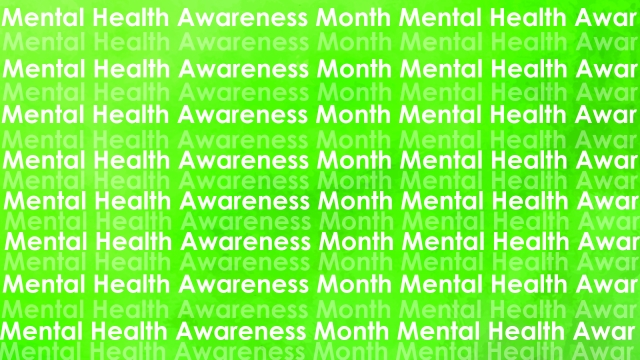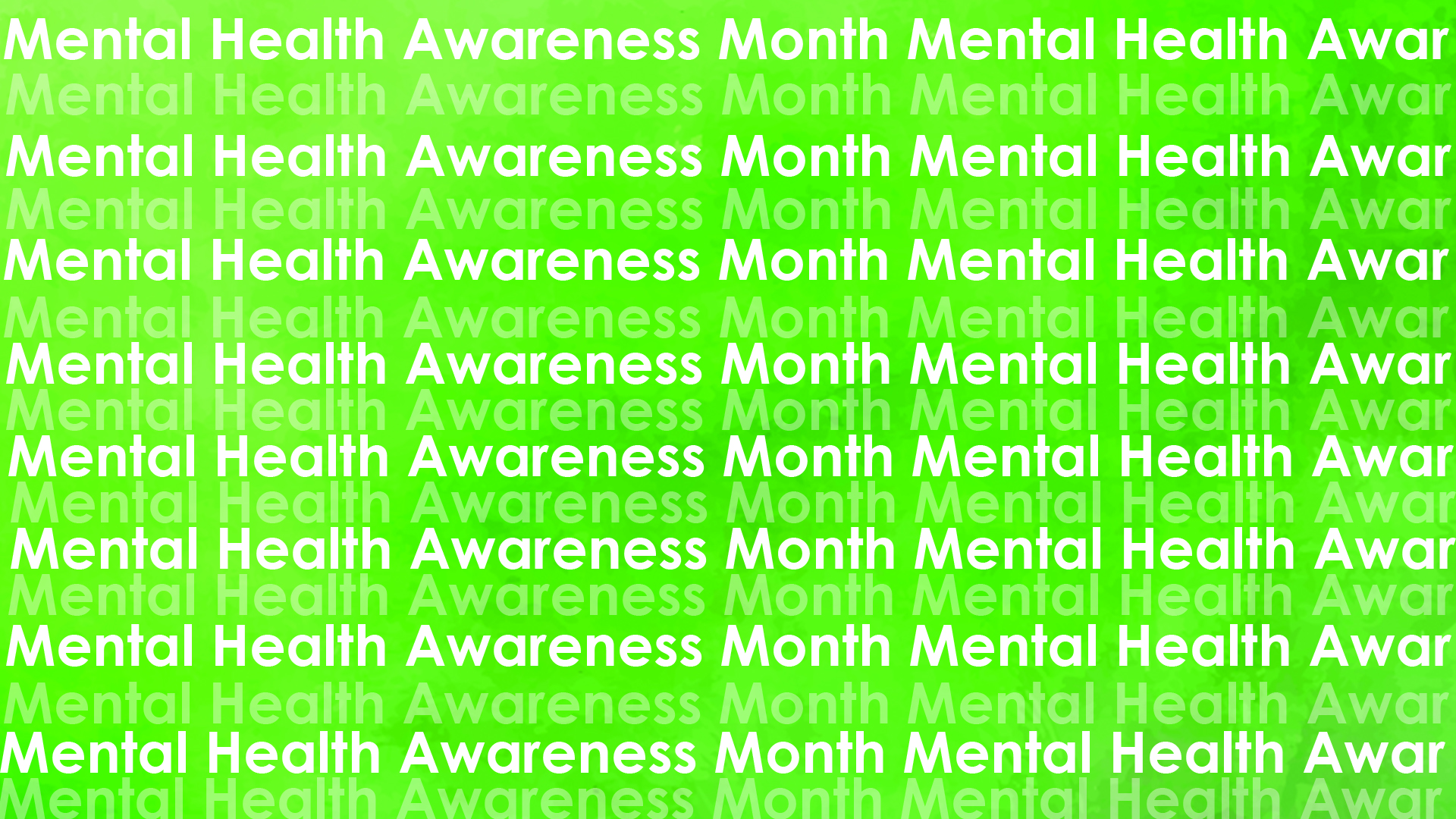
Breaking the Stigma: Nurturing Mental Well-being
Ryan Flores -In our fast-paced and demanding world, it is becoming increasingly crucial to prioritize our mental well-being. Mental health is a topic that has gained significant attention in recent years, shining a light on the importance of taking care of our emotional and psychological state. However, despite the progress made, there still remains a stigma surrounding mental health issues that needs to be broken.
At its core, mental health refers to our overall emotional, psychological, and social well-being. It affects how we think, feel, and act, and plays a vital role in determining how we handle stress, relate to others, and make choices. It is an integral part of our overall health, and just like physical health, requires nurturing and attention.

Unfortunately, due to a combination of societal expectations, cultural norms, and lack of understanding, mental health issues often carry a stigma that prevents individuals from seeking help and support. This stigma can lead to feelings of shame, isolation, and fear, making it even more challenging for those affected to reach out for assistance. As a society, it is imperative that we break through these misconceptions and create a more open and empathetic environment for discussing and addressing mental health.
Understanding Mental Health
Mental health is an essential aspect of our overall well-being. It encompasses our emotional, psychological, and social well-being, affecting how we think, feel, and act. Just like physical health, mental health is something that needs to be taken care of and nurtured.
One key element of understanding mental health is recognizing that it is not a fixed state but rather a continuum. We all fall somewhere on the mental health spectrum, which can fluctuate throughout our lives. It is crucial to grasp that mental health is not simply the absence of mental illness, but rather a state of well-being where individuals can cope with normal life stresses, work productively, and contribute to their communities.
Unfortunately, there is often a stigma surrounding mental health, leading to misconceptions and discrimination. Many individuals feel reluctant to seek help due to the fear of being judged or misunderstood. Breaking this stigma is essential for promoting mental well-being and ensuring that individuals feel comfortable and supported in seeking the assistance they may need.
Understanding mental health involves acknowledging that it is a complex and multifaceted domain. Various factors contribute to mental health, including genetic predispositions, life experiences, and socio-cultural influences. It is important to approach mental health with empathy and compassion, recognizing that everyone’s experiences are unique and valid.
By gaining a better understanding of mental health and actively working to break the associated stigma, we can create a more inclusive society that supports and values the well-being of all individuals.
Challenging Stigma
Mental health is an intrinsic part of our overall well-being, yet it continues to be surrounded by stigma and misconceptions. Overcoming these prejudices is crucial to ensuring that individuals receive the support and understanding they deserve. By challenging stigma and promoting awareness, we can foster a society that nurtures mental well-being.
Education plays a vital role in dismantling the barriers associated with mental health stigma. By providing accurate information and dispelling common myths, we can empower individuals to challenge their own prejudices and encourage empathy and compassion. Through education, we can foster a collective understanding and create an environment where seeking help for mental health concerns is seen as a sign of strength rather than weakness.
Language also plays a significant role in breaking down mental health stigma. The words we choose to use can either perpetuate harmful stereotypes or promote inclusivity and understanding. By using person-first language and avoiding derogatory terms, we can shift the narrative and highlight that mental health conditions do not define individuals but are rather a part of their experiences. By adopting a more compassionate and inclusive language, we can break the stigma surrounding mental health.
An essential aspect of challenging stigma involves promoting open conversations about mental health. Encouraging individuals to share their stories, struggles, and triumphs can humanize mental health experiences and reduce feelings of shame and isolation. By providing safe spaces for discussions, we can create a supportive community that validates the experiences of those living with mental health conditions. When we openly talk about mental health, we empower others to seek help and show them that they are not alone.
Breaking the stigma surrounding mental health is a collective responsibility that requires continuous effort. By challenging misconceptions, using inclusive language, and fostering open conversations, we can create a society that is understanding, empathetic, and supportive towards mental well-being. It is through these actions that we can truly nurture the mental health of individuals and break down the barriers that prevent them from seeking the care they need.
Promoting Mental Well-being
In our quest to break the stigma surrounding mental health, it is crucial to focus on promoting mental well-being. This involves creating an environment that supports and prioritizes mental health, enabling individuals to flourish and thrive.
One key aspect of promoting mental well-being is fostering a culture of open communication and understanding. Encouraging conversations about mental health helps to normalize the topic and reduce the associated stigma. By providing a safe space for individuals to share their thoughts and feelings, we can create a supportive community where everyone feels heard and validated.
Additionally, education plays a vital role in promoting mental well-being. Raising awareness about mental health conditions and the importance of self-care empowers individuals with knowledge and resources to take control of their own mental well-being. Through educational initiatives, we can equip people with the skills to recognize and address mental health challenges, promoting early intervention and seeking help when needed.
Lastly, it is essential to establish healthy coping mechanisms and self-care practices as part of promoting mental well-being. Encouraging activities such as exercise, mindfulness, and engaging in hobbies can have a positive impact on mental health. Prioritizing self-care enables individuals to recharge and manage stress effectively, contributing to overall well-being.
By actively promoting mental well-being through open communication, education, and self-care practices, we can challenge the stigma surrounding mental health and create a society that values and supports the mental well-being of all its members.
You may also like
Archives
- February 2026
- January 2026
- December 2025
- November 2025
- October 2025
- September 2025
- August 2025
- July 2025
- June 2025
- May 2025
- April 2025
- March 2025
- February 2025
- January 2025
- December 2024
- March 2024
- February 2024
- January 2024
- December 2023
- November 2023
- October 2023
- September 2023
- August 2023
- July 2023
- June 2023
- May 2023
- April 2023
- March 2023
- February 2023
- January 2023
- December 2022
- November 2022
- October 2022
- September 2022
- August 2022
- July 2022
- June 2022
- May 2022
- April 2022
- March 2022
- February 2022
- January 2022